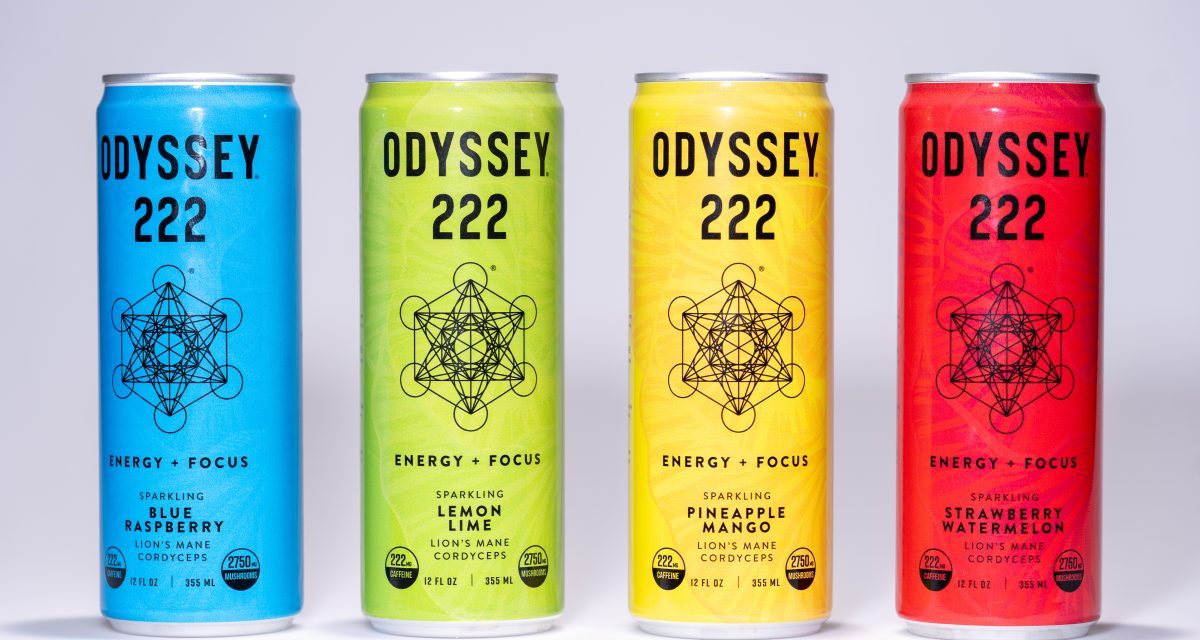How mushroom-based products have evolved into a mainstream grocery category

When Odyssey Wellness CEO Scott Frohman began seeking wholesale partners for his sparkling mushroom-infused beverages in January 2022, the first retailer to respond was Erewhon, the high-end natural-focused product store based in Los Angeles. But Publix, the 93-year-old Florida-based chain, turned him down.
Six months later, though, Publix came back and asked Frohman to get the drinks on its shelves. Odyssey has sold nearly 10 million cans this year, up from two million last year, and raised $6.3 million in a Series A in March.
“It’s not a weird thing you have to find in the back of the corner of the natural food store anymore,” Frohman said.
Mushroom-based products are becoming more popular as shoppers show increased interest in functional wellness products or food items that provide specific benefits like immune support, cognitive function and energy boosts. Certain types of mushrooms — called adaptogenic mushrooms — are said to have positive effects on the body.
Product intelligence firm Spins found in July that “super mushroom” food and beverage products saw $642 million in sales, a 19.5% year-over-year growth. Shelf-stable tea and ready-to-drink coffees in the category went up 250% year-over-year. Kombucha and other functional beverages went up 71.2% year-over-year.
In response, major retailers are making more shelf space available to startups in the category. With shoppers unsure about the herby umami that comes along with it, the mass market play shows CPG brands like Odyssey and Four Sigmatic mixing mushrooms benefits with products like coffee and energy drinks — or even gummies and chocolate bars.
This year, Odyssey entered more than 1,000 new stores, with a total of 6,000 retail partners nationwide. Recent additions include at least 730 7-Eleven stores, plus all 109 Wegmans’ locations throughout the East Coast. Previously, it’s been added to the lineup at CVS, plus supermarket chains like Bristol Farms, and HyVee.
Ad position: web_incontent_pos1
Anne-Marie Roerink, principal at market research firm 210 Analytics, said the mushroom space has particularly evolved over the last 10 years thanks in part to the ingredient being used in supplements. Having mushroom in energy drinks, chocolate or baked goods is a newer spin that’s gaining traction with retailers as shoppers look to blend indulgence with functional benefits.
“For a product to warrant shelf space, you’ve got to have a pretty good story to tell and say that ‘people want this,’” she said. “The fact we can see strong market entry within those all those items would be a very strong proof point.”
Odyssey carries three lines — two with different amounts of caffeine that are marketed as a better-for-you energy drink, as well one that is caffeine-free with electrolytes and magnesium that is marketed as a hydration boost. The brand has worked with micro-influencers on Instagram and TikTok to help position itself with Gen Z customers and also at music festivals.
But scaling comes with growing pains. Odyssey initially launched with coffee and tea products. But when the sparkling beverages became more popular, he discontinued the original line in order to focus on the energy and hydration markets.
“It was like two different companies, two different co-packers. It was hard to financially justify in the end, and then, it’s like ‘what’s your messaging, and what you’re doing,” he said. “But I pivoted fast, I think that’s really key, is to be able to make those tough decisions and make them quick.”
Ad position: web_incontent_pos2
Tero Isokauppila, founder and CEO of Four Sigmatic, was among the first entrepreneurs to get mushroom-based products into the mainstream. Since its founding in 2012, the brand has done more than $200 million in lifetime sales and says it is on track to have record-breaking sales in 2023. Some of this is driven by a wholesale expansion; the product is sold in at least 7,000 supermarkets like Sprouts, Target and Wegmans. Walmart began selling some of the varieties last year, and Whole Foods became a wholesale partner in April of this year. Four Sigmatic is also sold on Amazon where it ranks as the top best seller in the “unique grocery” category.
In response to the changing marketplace, Four Sigmatic in May put out new branding that repositions it as a mental wellness brand. Products are labeled with their desired effects, like “Boost,” “Think” or “Balance.”
Isokaupplia said part of the new consumer appeal, Isokauppila said, is how mushrooms can blend with other products, like a half-caffeine product.
“Using mushrooms and adaptogens as a natural source of sustained energy became kind of the best of all three worlds,” “You could have your cup of coffee, enjoy the flavor. You would have less caffeine. And then at the same time, you would easily consume these powerful natural substances that are a little more regenerative.”
Isokaupplia grew up in Finland, where mushrooms are a popular agriculture product, and foraging was a family pastime. When Four Sigmatic launched in the U.S. about eight years ago, mushroom-based products were mostly supplements found at independent natural food stores, he said.
“We were trying to educate retailers and they would just not get it or they would put it in weird sections, and consumers couldn’t find them in stores,” he said. “Now more and more retailers are aware of it as their own category, and are building these end caps or sets, and I think that’s huge.”

